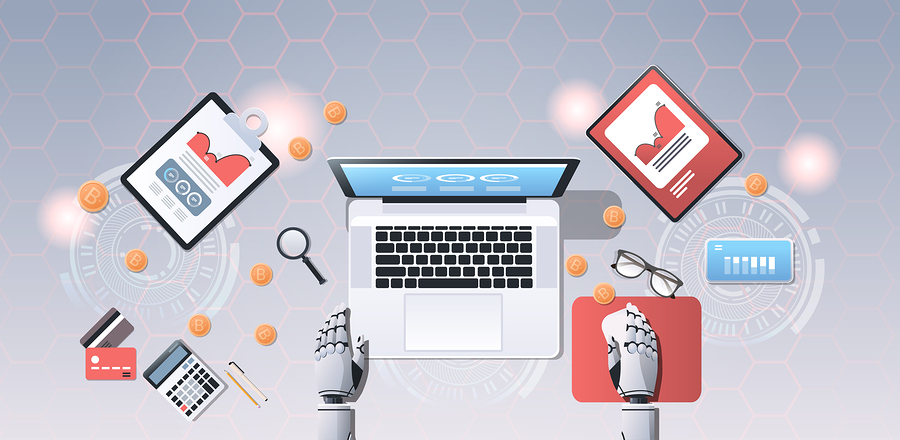When Is A Process Suitable For RPA?
21st November 2019 | By Jan Cahill
Robotic Process Automation (RPA) is a business process automation technology that is growing in popularity thanks to its potential to vastly improve business productivity. It uses software with machine learning capabilities to handle manual tasks that can take a lot longer for humans to perform.
What makes a process suitable for RPA? 
- Any task taken over by RPA has to have a digital aspect, but in addition there are other requirements a task must meet in order to be carried out successfully by software robots:
- The task must be rules based so that the robotic software has clear instructions to follow. RPA bots work by being programmed to complete set rules, so without these the robot will be unable to take over the task.
- The work must be clearly structured, consisting of simple, straightforward tasks that can be understood by robots. This is why it is often repetitive, monotonous work that is carried out by RPA robots.
- The task to be automated must be stable, meaning it will not be subject to further optimisation and the robot’s job will remain the same. Automating a process that is constantly being changed would end up being costly and inefficient, as developers would constantly need to adjust the robots.
Types Of Tasks Suited To RPA
Whilst there are some must-haves for tasks to be suitable for RPA, there are also some factors which make a job particularly suited to the technology:
- Tasks that are subject to volume spikes such as seasonal changes. Whilst this kind of job can cause havoc for staff during peak times, correctly programmed RPA will be able to tackle these fluctuations with ease.
- Mistake prone tasks. Once programmed, your robots will not make mistakes, so those tasks which are prone to human error can be made mistake free.
- High volume tasks. Some jobs take up a lot of staff resources just because of the sheer number of times a particular task needs to be carried out. RPA can remove some of the workload for staff and free them up for other tasks.
In addition, work where some degree of human judgement is required may also be suitable for RPA, using what’s called “assisted RPA”. In these cases, robots can be programmed to carry out repetitive tasks, but where an anomaly occurs they will notify a human worker via email.
Examples Of Tasks Carried Out By RPA
Here are just a few examples of business processes that can be carried out by robots.
Automated Statement Reconciliation
In accounting departments, RPA software can be used to reconcile your bank statement against your general ledger, verifying payments and flagging up an exceptions list to your AP team if there are any errors or anomalies requiring investigation..
Read more about RPA for account statement reconciliation
Employee onboarding
In HR, robots can be programmed to follow a list of tasks to get employees quickly and efficiently on-boarded, such as right to work checks, reference checks, ordering workwear and sending out employee handbooks.
Read more about RPA for employee on-boarding
Conveyancing
RPA software can work together with case management software such as ProClaim, as well as various other digital solutions, to carry out a range of conveyancing tasks within the legal sector.
Read more about RPA for conveyancing
RPA as a Service from Robocloud
Robocloud has a team of cloud-based software robots and offers a unique process automation service. This can be used by any sized company and can transform your manual or inefficient business processes. As a fully scalable solution, Robocloud’s robots can be hired on an hourly basis.
To find out more, contact Robocloud today on 0800 046 8086 or using the contact form.

